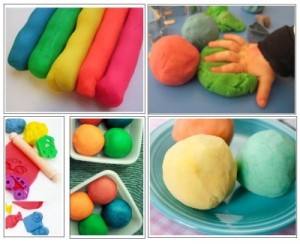Arizona Orthopedic Physical Therapy is in the business of making people feel better, function better and live better. They rely on a hands-on, individualized approach to treatment and provide the dedicated, qualified care you need. You can then get back to your job, your family, your life, faster. In order to help them promote their healing services, AZOPT has chosen Printing Solutions on several occasions to print marketing materials including business cards, flyers, postcards, notepads and greeting cards. We are proud to be their partner.
This guest post was provided by Josh MacDonald, OTR/L – and provides some timely help to parenting just in time for the kids to return to school. We have reprinted it here with permission of AZPOT and hope you find the advice helpful.

Increasing expectations in pre-school and kindergarten can mean children are learning to write much earlier than before. This has the potential to create multiple issues with your child’s handwriting. Gripping the pencil tightly, wrapping the thumb completely around the pencil, the hand becoming tired out easily, or letters appearing choppy without any smooth lines can all indicate your child has fine-motor coordination delay or weakness.
‘Fine motor’ refers to the development of small muscle movements of the hands which develop as your child’s whole body gains mobility, stability, cognitive, and emotional/social development. Unfortunately, the hands of 3 to 5 year old kids are often not developed enough to manage the accurate fine motor requirements of handwriting without specific warm-up and training. The in-hand manipulation skills required to make the small, smooth circles and straight lines are often more challenging than many kids are ready for at this stage. Nevertheless, schools have increased writing in the curriculum resulting in many kids who are struggling to keep pace.
There are solutions that can be effective for many of these kids. If the challenges are minimal and the child is motivated, some of the following suggestions may bridge the gap and improve their performance:
Play with Play-Doh!
Improving overall hand strength, including the smaller muscles in the hand, will help prevent fatigue and increase muscular endurance. Have your child play with Play-Doh or 3 to 4 containers of silly putty at the same time. Making large and small balls, rolling out snakes, and using tools to ‘work’ the Play-Doh will all help strengthen the hands.
Count Your Pennies
Coordination of the fingers plays a big part in handwriting. The ability to manipulate objects with coordination and accuracy will greatly improve the accuracy of letter formation. Try playing with pennies and nickels, picking them up from the table and transferring them from the palm to the finger within the hand. Using a small coin bank with a slim slot will encourage the use of finger tips for accuracy of placement.
Arts and Crafts
Cutting small items, beading or working to glue small items will all help to develop awareness and coordination of the hands and fingers. Whether it is cutting out shapes from paper plates, or coloring in small spaces, craft time is a great way to help kids with hand skills.
Tools Make a Difference
Minor equipment changes can also help with handwriting. Using crayons broken into 3 smaller pieces or very small pencils prevents ‘over gripping,’ and will encourage use of fingertips and result in more accuracy. You can also try one of the many different pencil grips available on the market. There is no one magical grip that works for everyone. Try several of them and stick with one of it makes a noticeable difference. You don’t want your child becoming dependent on this grip, so limit it to either only homework time, or only school time.
Each of these is offered as suggestions and may not, independently solve the problem. Your child may need more involved help. If this is the case, occupational therapy may be necessary.
If you are concerned with the overall development of your child, contact Kid’s Place for a Complimentary Developmental Assessment. Our complimentary developmental assessment is a 15 – 30 minute exam performed by a licensed physical, occupational, or speech therapist. They will assess developmental concerns with respect to gross motor, fine motor, or speech. Based on these results, our therapists will make recommendations for your next steps. This may include following up with a medical doctor. Additionally, they may show you simple exercises for the home to improve physical development.
To schedule a Complimentary Injury and Performance Screen or for more information, simply call (623) 229-7808. Appointments are a requirement.
You can view the complete article as well as many others with helpful advice by visiting the AZOPT blog